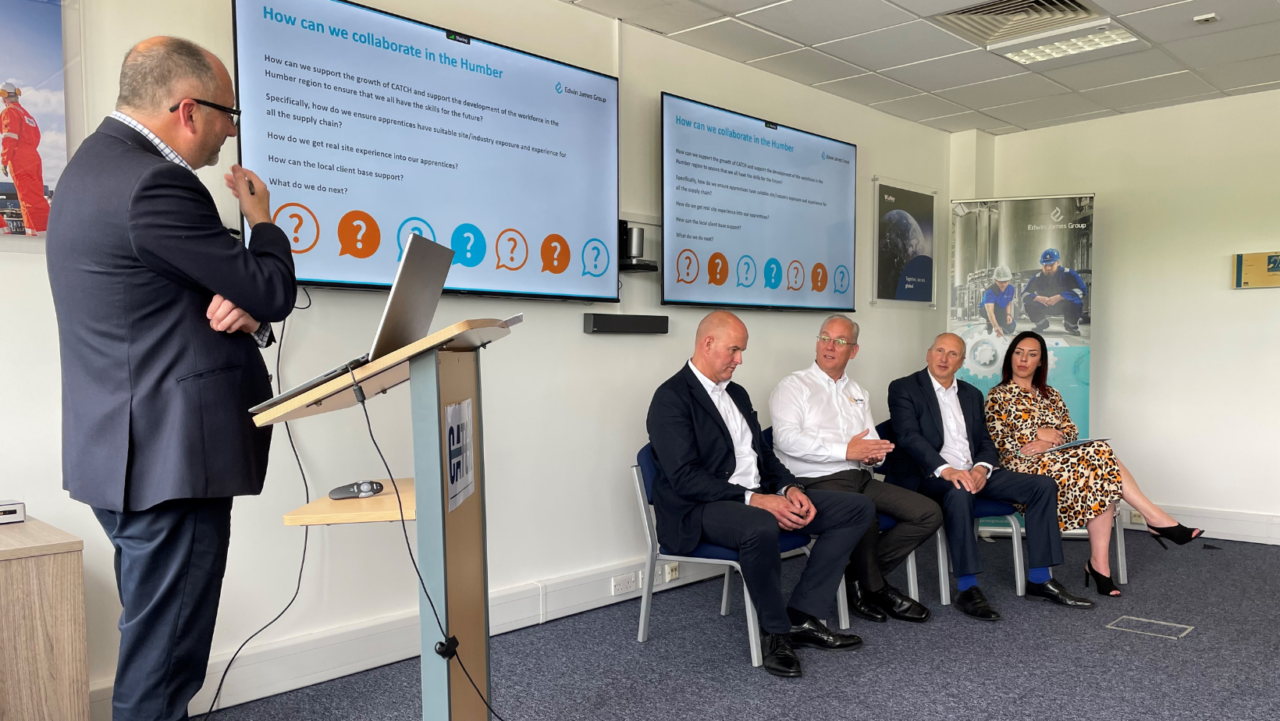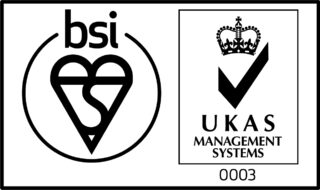Industrial Decarbonisation Network Write up 4th July

CATCH was delighted to host a special session of the Humber Industrial Decarbonisation Network featuring Edwin James Group and the Institute of Collaborative Working. The session was well attended by over 50 in person delegates who learnt about the benefits of collaborative working in contract performance and how industrial clusters can embed collaboration successfully to improve safety performance, decrease project risk and improve societal benefits.
David Talbot, CATCH CEO opened the event and welcomed Christopher Kehoe, CEO from Edwin James Group who co-chaired the session and has been an advocate for the Institute of Collaborative Working for many years.
The first speaker was Frank Lee, CEO of the Institute of Collaborative Working. Frank explained that working collaboratively means being honest and truthful and building trust and resilience with partners. Collaboration will be essential as we move towards meeting net zero targets each of us will need to explore our Scope 3 emissions. Measuring and monitoring performance, for example, social value outcomes and impacts are critical. Frank spoke of evidence of improved safety performance in contracts where principles of collaborative working have been implemented. Structure is the key to effective collaboration and helps manage risk – look at your systems, processes, competence and culture.
Louise McMahon, Strategy and Business Improvement Director at Kier Highways gave the next presentation which was a case study to describe how the Kier Group has used a robust framework for both internal and external collaboration. Building strong supply chain partnerships is one of the success criteria for the business. Kier was awarded the ISO44001 standard in 2017, being one of the early adopters. Louise recognised that the standard is hard but what are the risks of not doing it? The ICW has an assessment tool that organisations can use to see where they are on the journey.
Stuart Driscoll, Managing Director of Parker Technical Services presented a Sellafield case study. Historically, projects at the complex site have overrun and gone over budget. The collaborative approach established a Programme and Project Partnership of key partners to deliver improved performance over a 20 year pipeline of major infrastructure projects. The PPP work together to identify and mitigate risks, measure performance, and meeting social impact targets including local job creation and training opportunities, meeting environmental targets, as well as school engagement.
After the break, Mark Orpin, COO Edwin James Group, gave a presentation on how the organisation has driven up apprentice numbers to over 150 learners across a group of 1000 employees. Mark explored the drivers and challenges this has presented and the wider skills shortages across the sector.
David Talbot led a Q&A panel featuring all speakers and took questions from the audience.






